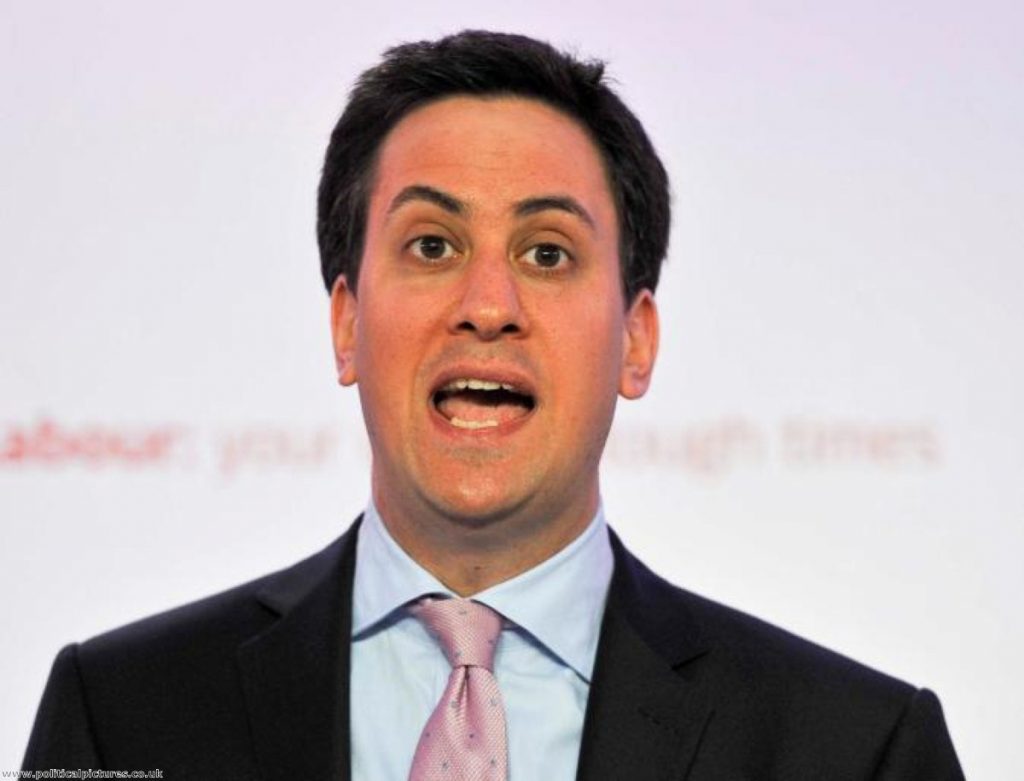The Week in Review: The reinvention of Ed Miliband
It was one of those weeks without major battles, in which the generals conducted manoeuvres. Ed Miliband tried to earn a right to be heard on the economy by taking on a little austerity rhetoric. David Cameron tried to use a political lobbying scandal to deliver a body blow to his rival's fundraising arrangements. And Nick Clegg, well, it's not entirely obvious what Nick Clegg was doing. Rearranging the furniture in Downing Street, perhaps.
Miliband started his Miliband 2.0 week with a speech by Ed Balls, the shadow chancellor who would be boss. Cameron has a cruel line in jokes about how Miliband has to make his subordinate the tea, but this week Balls was reduced to the opening act. He delivered a pivotal speech, in which Labour effectively gave up on universal benefits. That probably lost them a few supporters on the left but got the attention of conservative pundits. Cameron can't go near winter fuel payments because it would damage him with one of his core constituencies: old people. Old people have two important political qualities: they always vote and they bear a grudge. Cameron wouldn't raise his voice against them if they chatted up his wife at a party. Miliband, on the other hand, doesn't have a chance with most of them and the ones that he does have a chance with will still be eligible for the payments once he introduces a means test.
The measure will bring in very little money, but it was designed to show Labour was prepared to make the *drumroll* 'tough decisions'. Miliband's message during his Thursday speech was much more nuanced and interesting. He backed a cap on social security, but the policies weren't a straight transcription of the Conservative agenda. Instead, the aims were for long term savings: ploughing housing benefit into bricks and mortar rather than landlords' pockets, that sort of thing. Miliband did this once before, on immigration. He plays one song but everyone hears a different tune. It's quite the trick. By the end of the day he seemed to have the right and left of the party mostly onside and the right-wing press offering about ten per cent of their ears. It's nothing even approximating a Brave New World but he broadly achieved what he wanted to do.
Cameron did too. After more lobbying scandal revelations over the weekend, he and Clegg promised action to tackle the scandal which he said ages ago is the next scandal waiting to happen and which he still hasn't tackled yet. Their response was to attack union funding of Labour. Even Tory MPs blanched at the outright cynicism of that. Those who campaign for party funding reform were equally unimpressed. They want union funding to be tightened up, but together with a cap on individual donations to stop the Tories powering ahead on rich men's money while Labour lags behind on nothing.


Meanwhile, Lib Dems decided enough was enough and rebelled en masse against the grand bargain between their party leadership and the Tories. It's quite remarkable when something finally irritates them enough to do something about it. It's like an elephant waking up after a long sleep, casually brushing itself, then going back to bed.
Gay marriage survived a 'fatal motion' in the Lords this week and continued its emotional journey through parliament. Once again, peers stood up to issue some of the weirdest arguments ever heard in polite society, including now infamous twists of logic on lesbian artificial insemination, the royal family and incest, although unfortunately not at the same time. It was political drinking game heaven. Opponents say they haven't given up the fight yet, but they're basically done for. It will almost certainly pass.
There was also something important in Lord Ashcroft's latest batch of polling: Cameron is now less popular than his party. It could be an outlier, but if it's substantiated by later polls it's potentially a game-changer. Until now, he could keep his party under some semblance of control by pointing out modestly that the public preferred him to them. If that's not true, and Labour lies just ten temptingly-close points ahead in the polls, they may feel the tug of disloyalty at their heart again. It's alright, though. Tory MPs are always very good at ignoring the tug of disloyalty. They never get rid of their leaders on a whim and prayer.









